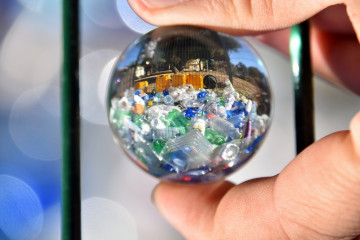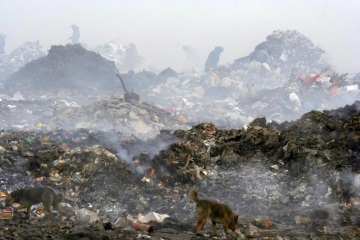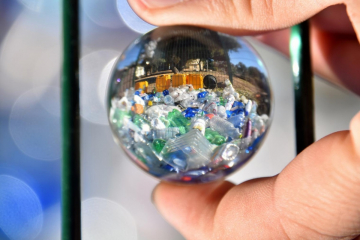Here is a look at some of HPRC’s most recent work.
Hospicycle
While hospitals have been champions of recycling for decades, efforts have largely focused on food service and administrative areas and not on patient care settings where the majority of health care plastic materials are generated. With sustainability becoming an increasing priority, healthcare organizations are determined to do more to address this plastic waste challenge. In response, HPRC has developed a solution to help hospitals successfully integrate recycling practices into patient care settings, and better understand the economic, regulatory, resourcing, and infrastructure nuances that come with it. Through a step-by-step approach, this guide – called Hospicycle -- is intended to help hospitals navigate the process of activating a plastics recycling program from initial planning and business decisions through program implementation and improvement considerations.
Learn more about Hospicycle
Design Guidelines
A product's end of life is becoming an increasingly important aspect of its design. With extended producer responsibility programs moving from voluntary to mandatory in many parts of the world, designing products with recycling in mind is critical to recycling success. One of the very first projects that HPRC completed was developing a set of design guidelines that outline useful design considerations for improving the recyclability of disposable plastic products and packaging. Developed by product and packaging engineers, this tool identifies and articulates design features that inhibit post-use recycling potential and makes design recommendations that could enhance product recyclability. HPRC is currently making updates to these Design Guidelines to incorporate insights from recent work as well as align with other external design standards.
Learn more about Design Guidelines
Advanced Recycling Research
Over the past couple of years, HPRC has been researching, evaluating and educating itself on advanced recycling technologies and their suitability for healthcare plastics. Advanced recycling -- also referred to as molecular or chemical recycling -- uses solvents, heat, enzymes, and even sound waves to purify or break down plastic waste for recycling. And while advanced recycling technologies are still nascent and not yet widely available, they appear to offer promising solutions for difficult-to-recycle healthcare plastics -- such as multilaminate packaging materials -- that can’t be processed using traditional mechanical recycling processes.
Over the course of 2021, HPRC embarked on a second phase of advanced recycling work and partnered with advanced recyclers to conduct a pilot project to better understand the suitability of a mixed stream of healthcare plastics as a feedstock for different advanced recycling technologies. The goal of this work was to uncover new recycling opportunities that will reduce landfill waste, carbon emissions associated with creating virgin plastic, and reliance on fossil fuels — ultimately enabling greater material circularity.
Learn more about Advanced Recycling Research
Read more about other HPRC resources and featured projects at www.hprc.org.










